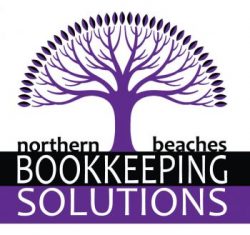Bookkeepers play a crucial role in managing the financial records of small businesses. From recording daily transactions to preparing financial reports, bookkeepers ensure that businesses stay financially organised and compliant. But what exactly does a bookkeeper do? Here’s a comprehensive overview of the key tasks and responsibilities of a bookkeeper.
What Is a Bookkeeper?
A bookkeeper is responsible for maintaining accurate financial records, including tracking income and expenses, reconciling bank statements, and managing payroll. They provide essential financial data that business owners rely on to make informed financial decisions, prepare for tax time, and assess cash flow.
What are the Key Responsibilities of a Bookkeeper?
Bookkeepers perform various tasks to keep a business’s financial records up to date. Here are the primary responsibilities:
- 1. Recording Transactions: They record all financial transactions, including sales, purchases, payments, and receipts. They categorise expenses and income to ensure accurate reporting.
- 2. Bank Reconciliation: They reconcile bank statements to verify that all transactions have been recorded accurately and to identify discrepancies or errors.
- 3. Payroll Processing: They calculate employee wages, withhold tax, and process payroll payments. They also track employee leave and entitlements.
- 4. Accounts Payable and Receivable: They manage invoices, track outstanding payments, and follow up on overdue accounts to maintain cash flow.
- 5. BAS Lodgement: Registered bookkeepers prepare and lodge Business Activity Statements (BAS) to report GST, PAYG, and other tax obligations to the ATO.
- 6. Financial Reporting: They generate financial reports, such as profit and loss statements, balance sheets, and cash flow statements, to provide insights into business performance.
- 7. Managing Cash Flow: They monitor cash flow, identify potential cash shortages, and recommend strategies for managing cash reserves.
- 8. Maintaining Records: Accurate record-keeping is essential for tax reporting and financial audits. They ensure that financial records are well-organised and accessible.
Why Hire a Bookkeeper?
Hiring a bookkeeper can save time, reduce stress, and ensure that your business remains financially compliant. Here are the top reasons to hire a bookkeeper:
- Time Management: Free up time to focus on growing your business instead of managing paperwork.
- Accuracy: Reduce the risk of financial errors that could lead to costly tax penalties.
- Compliance: Stay compliant with ATO regulations for GST, PAYG, and BAS lodgements.
- Cash Flow Management: Ensure that invoices are paid on time and expenses are tracked effectively.
- Financial Insights: Access accurate financial reports to make informed business decisions.
How to Choose the Right Bookkeeper
When selecting a bookkeeper, consider the following:
- Experience: Look for a bookkeeper with experience in your industry.
- Qualifications: Ensure they are registered BAS agents if they will be lodging BAS on your behalf.
- Software Knowledge: Choose a bookkeeper familiar with accounting software like Xero, MYOB, or QuickBooks.
- Communication: Select someone who provides clear and timely financial updates.
How Bookkeepers Support Small Business Growth
Their role extends beyond data entry and record-keeping. They provide valuable insights into cash flow, profitability, and financial trends, helping business owners make strategic decisions that drive growth. With accurate financial records, business owners can identify opportunities for cost reduction, improve budgeting, and plan for expansion.
Need a Reliable Bookkeeper for Your Small Business?
If you’re struggling to keep up with financial records or need support with payroll and BAS lodgements, Northern Beaches Bookkeeping Solutions can help. Our experienced bookkeepers provide comprehensive bookkeeping services to keep your business financially organised and compliant. Contact us today to learn more.
